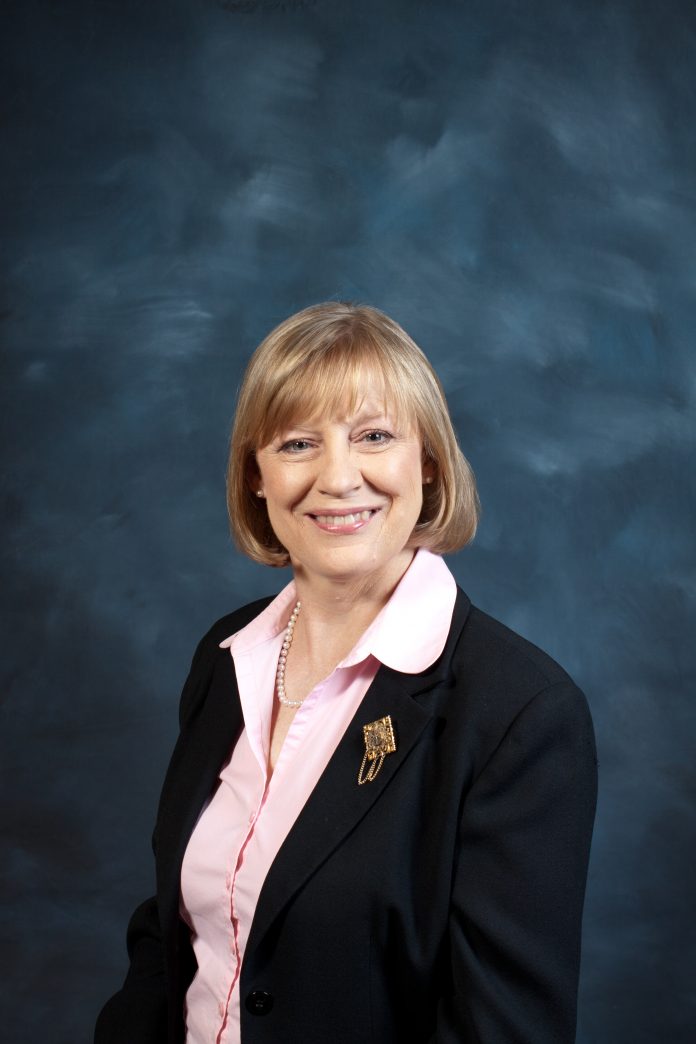Ruth Martynowicz, vice president of operations for Mercy Home Health, has been in the nursing field for more than 30 years. After helping to battle the devastating outbreak of HIV in the ‘80s, she never imagined her career would encompass yet another public health crisis.
That is, until COVID-19.
“I was around with the onset of HIV back in the early ‘80s. That was a scary time, but this is considerably worse in that it’s so communicable,” Martynowicz said.
Part of Mercy Home Health is St. Mary Home Care, which has provided personal care and skilled nursing, rehab and social work services to area seniors, from the comfort of their homes, since 1910.
Though these patients require less urgent medical attention and aren’t in a “typical” healthcare setting, Martynowicz said providing care and treatment is still very much vital, and praised the Home Care nurses for continuing these services during COVID-19.
“They do an excellent job at taking care of their patients, but they also have stress and fear. They’re on the frontline, but they’re alone a lot because they’re going into homes. They don’t have the camaraderie that you might have inside a hospital, with coworkers working alongside you that are in the same boat,” Martynowicz said. “And sometimes, the home situations are far from ideal. In the hospital, you have a more controlled environment. With infection control sometimes, you have to be extremely careful because some of the homes just don’t lend themselves to a clean environment.”
Prior to the pandemic, St. Mary Home Care served about 4,000 patients daily. While that number has decreased to 3,000, the nurses have their work cut out for them.
“We are servicing over 120 patients with COVID-19, or what we call ‘COVID-pending,’ meaning we’re waiting for the test results,” Martynowicz said. “We have been very active in taking care of the patients that are home that are positive. We also go into homes where maybe the patient’s not positive, but the family members are positive.”
For Ed Jimmerson, RN, his role as a Home Care nurse involves much more than caring for seniors.
“Some of them are afraid that we’re going to bring COVID-19 into their homes. They have the fear of seeing us come in with all this equipment on. If they’re COVID-19-pending or COVID-19-positive, it’s allaying their fears. It’s managing their symptoms,” he said. “And then there’s social problems because members that are normally out of a household are packed into a household together. So, there’s a lot of social pressures within the home. People are on top of each other. We do a lot of risk management with that, too.”

Despite increased pressures on healthcare workers, Jimmerson’s passion for his job is unwavering.
“Not to sound corny, but I consider it a calling. I love doing it. I love being able to be here for people when they need us the most, and that’s what we’re here for – to do that,” he said. “In many ways, we’re being exposed to this all the time. There’s other illnesses out there – the flu, pneumonia. It’s part of what we signed up for. We want to be cautious and many things that they teach you to do with infection control and infection management applies in the same way.”
As numerous states begin announcing plans to reopen their respective economies, Martynowicz warned that COVID-19 isn’t behind us just yet.
“From what I’m seeing, in the last week or two, we’ve actually seen more cases than we did at the beginning. As the hospitals come down a little bit and more patients are either coming home or they don’t need to be hospitalized, we’ve seen an increase in the number of COVID-19 patients that we’re caring for,” she said. “We need to continue to protect our vulnerable population because we don’t have a vaccine. Just because things might be loosening up soon doesn’t mean that the virus has gone away. You still run the risk for certain populations to get very sick.”

St. Mary Home Care began screening patients for the virus at the start of the pandemic, checking to see if they had temperatures and asking if they were exposed to anyone who tested positive. According to Jimmerson, testing, as well as remaining diligent with social distancing and good hygiene, should help those numbers go down.
“That’s going to flatten the curve that they talk about on the news and improve the outcomes that we’re seeing,” he said.
In addition to skilled nursing services, St. Mary Home Care offers MercyFul Companions, which connects patients with volunteer sisters and laypeople.
“If a nurse in the field identifies someone that’s alone or looking depressed, our MercyFul Companion can call them. If they want to say a prayer, they can say a prayer, or if they just want to chat with somebody,” Martynowicz said. “It’s as much or as little as the patient would like.”
Jimmerson stressed that the work of St. Mary Home Care – and getting rid of COVID-19 once and for all – is a group effort.
“If we’re not all in this together, it doesn’t matter what we’re doing in healthcare. It’s the first responders that help us. It’s the patients and their family members. It’s the hospitals. It’s agencies that support us,” he said. “It’s not just us out there. It’s everybody.”
Visit stmaryhealthcare.org/homecare for more information.
Samantha Bambino can be reached at [email protected]


